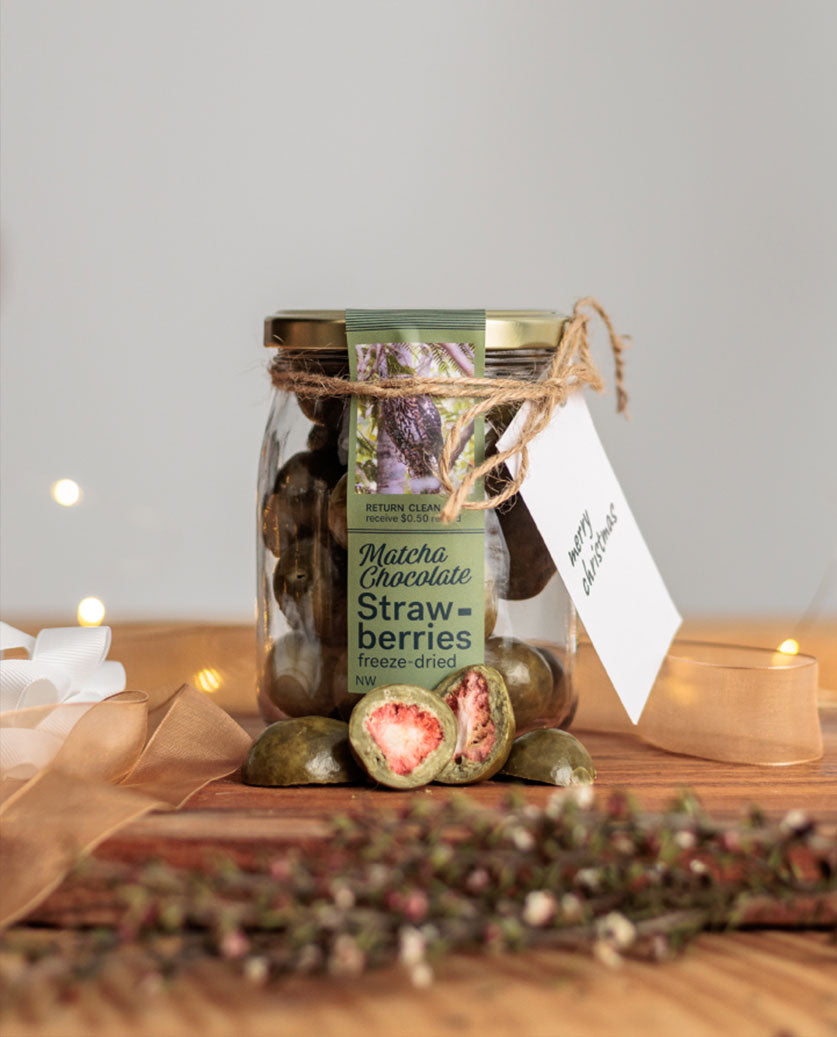Sustainable Living with Gosia Piatek, Founder of Kowtow
Meet Gosia, the founder of Kowtow – a womenswear label designed in NZ, committed to positive change and making ethical clothing from seed to garment.

With Fashion Revolution Week last week and Mother’s Day next Sunday, what better time to chat to mum and founder of ethical and sustainable label – Kowtow. And if you’re wondering, where the name came from, the word ‘Kowtow’ is a Chinese word that represents the custom of deep respect, shown by kneeling and bowing so low that your forehead touches the ground. It sums up nicely the respect Kowtow has for people and the land.
1. When did you first get introduced to the idea of sustainability?
In the 1980s when I was a kid. I spent a lot of time in nature and noticing that litter felt and looked wrong.
2. It’s such a broad term – how do you like to define ‘sustainable fashion’?
For us it’s a journey of constantly improving and addressing the big and small issues and working towards solutions. Sustainability isn’t an end goal, it’s a journey of constant exploration. It can be hard as a sustainable company to speak about flaws, but they exist for everyone and vulnerability is the key to creative positive change. When we started 15 years ago, we had a very strong foundation of values, we are inspired by reductive design, that less is more and now navigating our way with circularity. Because as designers, I feel we are accountable for the end life of a product. I also think sustainability in fashion addresses the environment and the people. We predominantly work with certified fair trade organic cotton, a natural fibre grown by small scale fair trade certified producer groups in a production chain that is transparent. We are genuine in what we do, it comes from our hearts and isn’t a corporate checklist item. We approach sustainability practically and work on resolving, simplifying and making sense of what we do so that it benefits the people and the planet.

3. What are some of the important factors people need to consider before they purchase something?
What is the packaging made from? Does the company know who made the product? What happens to the end life of the packaging and product? Unfortunately I don’t think recycling always works, so we have to be more proactive in seeking out solutions. That’s why it’s so amazing your company exists for Wellingtonians. Bulk for life!
4. Do you have any advice you can give to other business owners, parents or anyone on how to balance living a sustainable, healthy lifestyle while juggling work and mum life?
Is there such a thing as balance in life? Do what you can and don’t judge yourself too hard, the judgment can be crippling. But it’s nice to connect with your community and friends as that’s the way ideas are shared and spread. We are lucky enough to live in a very conscious city, where liberal ideas are communicated with ease. And if it all falls apart, jump in the sea for some remedy!
5. We’re lucky to be just around the corner from your Wellington flagship store – do you have any regular or favourite ingredients or products from GoodFor?
Packageless snacks are a winner! And I love how GoodFor offers so much more than food, but also cleaning products, hair products, olive oil, kombucha etc.

6. What’s your idea of the ‘perfect packageless pantry’?
Everything packageless and I am working towards this! So I have started to buy very simply and locally. I live for more than half of my year now in London and my local shops are pretty good for package free products (the supermarkets in the UK are horrendous for single use plastics – avocados come in 3 different types of plastic!). I visit our local green grocer for all fruit & vegetables and then buy my nuts, grains and dried fruit in bulk and my local cheesemonger packs his cheese in paper, sells bread and I can fill up my cleaning products with him too. Last year I went completely plastic free for about a month, it was amazing but difficult and I missed eating crisps, but I noticed Proper Chips in New Zealand now does them in biodegradable packaging.
7. Do you have any intentions for 2020 you want to share?
Be kind. Volunteer. Start a new hobby. Do more exercise. Be nice to yourself. Teach my son to be a good human and not take anything for granted. That’s a lot. I’ll try, thank goodness it’s only April.

To find out more about Kowtow and their sustainability practices, you can check out their website here.
Thank you for reading! If you have a brand or sustainability advocate you’d love us to interview, leave us a comment below.
 GoodFor
GoodFor

